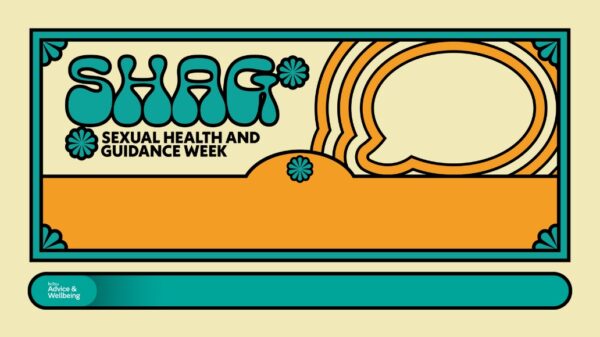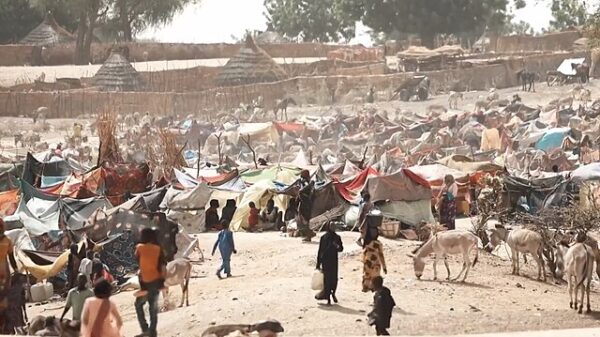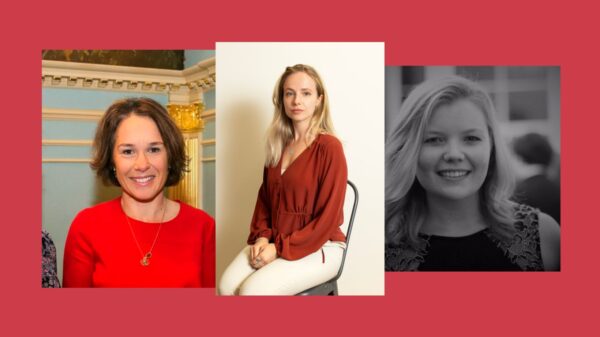Roar writer Dania Quadri talks to Sarah Lasoye about her new poetry collection, “Fovea / Ages Ago”.
I first met Sarah five years ago when we were freshers studying Biomedical Science at St. George’s University of London. She turned up to tutorials in 90s inspired fashion, conducted herself with ease, and was the president of the Intersectional Feminism Society. She was someone I definitely wanted to be friends with.
When I saw on Twitter that her debut poetry collection, “Fovea / Ages Ago,” was out, I immediately got my hands on a copy and asked her if she’d like to speak to me, and she kindly agreed. After recollecting amusing and awkward ‘biomed’ moments, and catching-up on the now, we spoke about her debut collection.
Roar: In the introduction to “Fovea / Ages Ago,” you talk a lot about the power of the imagination, particularly its importance in your childhood. What role do you think imagination plays in your adult life, within and outside of poetry?
Sarah Lasoye: The imagination is so important to me, because of the people I met and the friends I made when I went to work at the NUS. I met people who were thinking actively about the imagination and what it means in student organising and wider community organising. It helped us maintain a vision of what we were working towards, and that really cemented it for me as something I wanted to hold on to. But then it also made me realise that in childhood there is this expansive, elastic, and beautiful imagination that we don’t necessarily take as a meaningful thing, so that’s what I wanted to talk about in the opening of “Fovea / Ages Ago”.
As an adult, the imagination to me really is a tool for ushering in the kind of world that I want to see. So, as much as it is fun and helpful in creative and artistic work to think broadly, it is also something that enables me to hold firm to my political commitments. For instance, [the UK] government will say: “This is not actually possible” or “There is not enough resources for xyz”. But all of that is a construct of their own imagination, and so the power of our imagination is to refute that and to create something else.
Within poetry, imagination offers me an escape from a lot of pressures I sometimes feel to write in a particular way. I think a lot of poets of colour feel [like this]. There are some things that I know people will want to hear a black queer woman write about. And I don’t want to do that! I feel it, I feel the pressure on me. Holding firm to the imaginative potential is my guiding steer.
R: When I was reading your work, I was reminded of this quote by Maya Angelou where she talks about growing up:
“I am convinced that most people do not grow up. We find parking spaces and honour our credit cards. We marry and dare to have children and call that growing up. I think what we do is mostly grow old. We carry accumulation of years in our bodies and on our faces, but generally our real selves, the children inside, are still innocent and shy as magnolias.”
How do you feel about this quote in relation to your own ideas about growing? Do you feel that we ever truly leave our childhoods?
SL: I don’t think we do. For functionality – in a very pessimistic view of the world – and the way the world functions in this capitalist frame, we must visualise that there is a part of our life that is childhood, [where] we’re innocent and we’re free to imagine and play. And then we move into adulthood, and then it’s time for work. And it’s time to contribute something, time to pay your bills and do your taxes – and so it feels like you must make a split from childhood. But that’s a manufactured division, and I don’t think it necessarily exists for everybody in the same way, if at all.
There is a lot of truth in that quote, and I’m trying to hold on to my child self. In the book as well, what I was saying a lot was about the sense of time, memory, and tracing. Me and the person I was at seven are the same person right now, even though the way we are taught to think about childhood is that “that is a completely different kid”. I wanted to ask myself, what if you’re still that kid? What does that mean for you now, even though you’ve learned new skills of relating to people? The world punishes you for certain things and celebrates you for other things, and so you start to move accordingly. But what is still there underneath, fundamentally and inherently to you?
And it’s a really nice way of thinking about it, because then you don’t feel as guilty. The way I thought about myself as a kid, a lot of guilt came into it. I felt bad [that] I was not living up to the ideal of what a good kid, girl and daughter would be. Now [I know] that it is not a static state childhood, and it is a constant learning process. And if I am that same person now, then I can be proud of the fact that I have learnt and grown.
R: Are you saying that the collection is a way for you to reframe your understanding of your childhood without that sense of guilt?
SL: I think it’s a way for me to acknowledge who I was as a person then, and the uncertainty that I had in myself, and be okay with it. [The aim is] not to try and look at it from an angle that would make me look more redeemable, even though now, just by being an adult, I am less hard on myself. I just wanted to sit with who I was wholly as a person at that age and not reduce any of my thoughts to just being really, “Oh, just kiddish things”. I wanted to pay a reverence to it as well.
R: There seems to be a boundary between adulthood and childhood that exists somewhere, but it is such a fluid and strange boundary. When I ask myself, what was the moment I became an adult…I don’t know. Is there one?
You mention that the fovea represents two things to you, “aspirational acuity, and fundamental receptivity,” and that now you’re focussing on being more receptive. Could you tell me more about what being receptive means to you, and the value you see in being receptive, especially in the pandemic?
SL: Receptivity to me means adopting an ethics of care, which in the last couple of years I have taken more seriously. In my personal relationships and in my work, it means being able to not centre myself only but centre the needs of a collective.
Especially during the pandemic, we’re not asked to care about one another, all the rhetoric the [UK] government gives us is that [we] need to stay alert to a virus, as if you could be alert to a virus! It does not make sense if you think about it. But it just uses the same rhetoric of surveillance, and weariness other people, and being worried about jeopardising yourself because of someone else… as if other people harm you, when it’s the structures and systems that have been put in place that mean we are unable to care for ourselves as a collective.
Watching the devastation, all these avoidable deaths that we are being asked to forget about immediately, is just really affirming to me of how we need to be open to what is going on around us in our direct communities. It will feel weird, and it will be another thing to add to your agenda, but at the end of the day it also benefits you to do that, because all of us getting stronger, all of us getting better, all of us getting healthier, all of us being heard and listened to by one another makes for a stronger collective, and that’s invaluable to me.
Receptivity may initially mean to be open and ready to receive, but it is also almost seeking out that – to use the fovea metaphor – light in a way of just being aware and attuned to where people need you, and orienting your body and yourself towards that purposely, so that you can hold them fully.
 The second part of this interview was published on the 23rd of October and you can find it here.


















